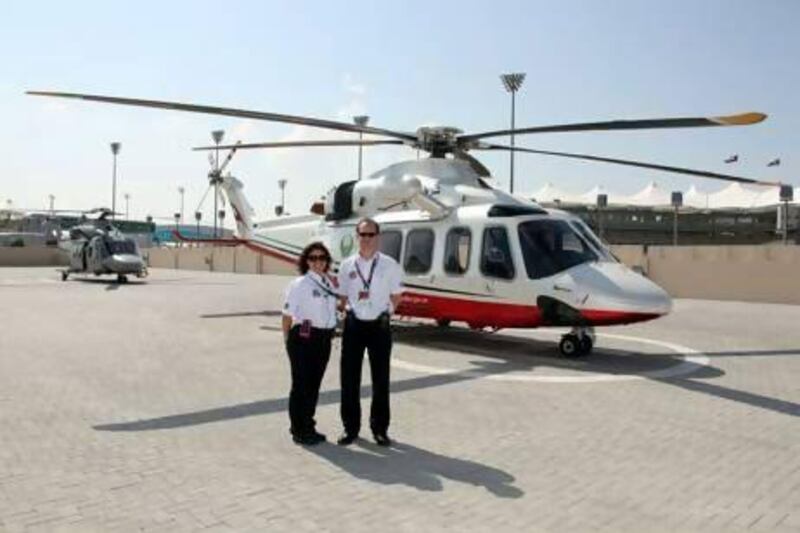DUBAI // A husband and wife team are leading the way in research and training for people involved in motor racing to avoid problems caused by the UAE's extreme heat.
Dr Sean Petherbridge, the national Automobile Touring Club's chief medical officer, and his wife, Dr Shereen Habib, deputy chief medical officer, play a key role in the club's education, training and research division.
"In the Middle East, we face unique challenges created by terrain and climate, such as heat exhaustion and dehydration, and there are similar problems in Africa and many other parts of the world," Dr Habib said.
Their most recent study was conducted in conjunction with the University of Ulster, and published this year.
It found that 86 per cent of marshals at the Desert Challenge, 61 per cent of those working at the F1 Abu Dhabi Grand Prix and 54 per cent of the volunteers for the Dubai Rally suffered from dehydration during the events.
The side effects of dehydration include poor concentration, co-ordination and reaction time, and an increased risk of heat stress or exhaustion, making physical work more difficult.
"This is clearly a significant health and safety issue that needs to be considered and given high priority," the report says.
If race marshals have reduced reaction time, for example, it has safety implications for drivers travelling at high speeds and relying on track officials for accurate guidance or information.
The couple discussed some of the findings last weekend while hosting the region's first motorsport medical seminar at the Grand Hyatt in Dubai. It was attended by 20 delegates from Kuwait, Lebanon, Qatar, Saudi Arabia, Syria, South Africa, Mozambique, Kenya, Nepal, Botswana and Georgia.
"We got a lot out of it," Dr Petherbridge said. "The flow of knowledge goes both ways. We have flagship events in the UAE because we have many years of combined experience."
Thanks to the couple's efforts, the touring club is one of only four national motorsport authorities in the world qualified to deliver motorsport training on behalf of the world governing body FIA and has trained teams to FIA standards in 16 countries.
"Motorsport medicine has changed dramatically in recent years, and for the better," Dr Habib said. "Many more guidelines and regulations are now in place to make the sport safer."
Despite the new standards, there is a need to bring all race medical officers up to the same level, Dr Petherbridge said.
And it does not matter how skilled the doctor is in the operating room – knowing what to do trackside after a high-speed crash requires a different skill-set.
"This is pre-hospital medicine," Dr Petherbridge said. "The ER is used to receiving nicely packaged patients on a spinal board with a detailed history of their injury."
Medical personnel at the track have to make immediate, critical decisions.
"There's a particular skill-set medics need to know and learn. They have to decide on the spot to take the driver out or cut the car around him. Or do they treat him in the car?"
Plans are under way to host the next seminar in September.
"It will be more focused on the practical aspects of training," Dr Petherbridge said. He hopes to simulate a roll-over crash with a trapped driver and use the scenario to learn applicable techniques and stress the importance of split-second decision making.
eharnan@thenational.ae






